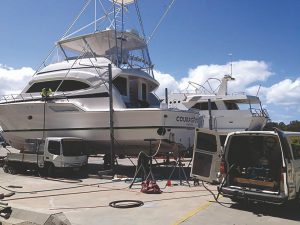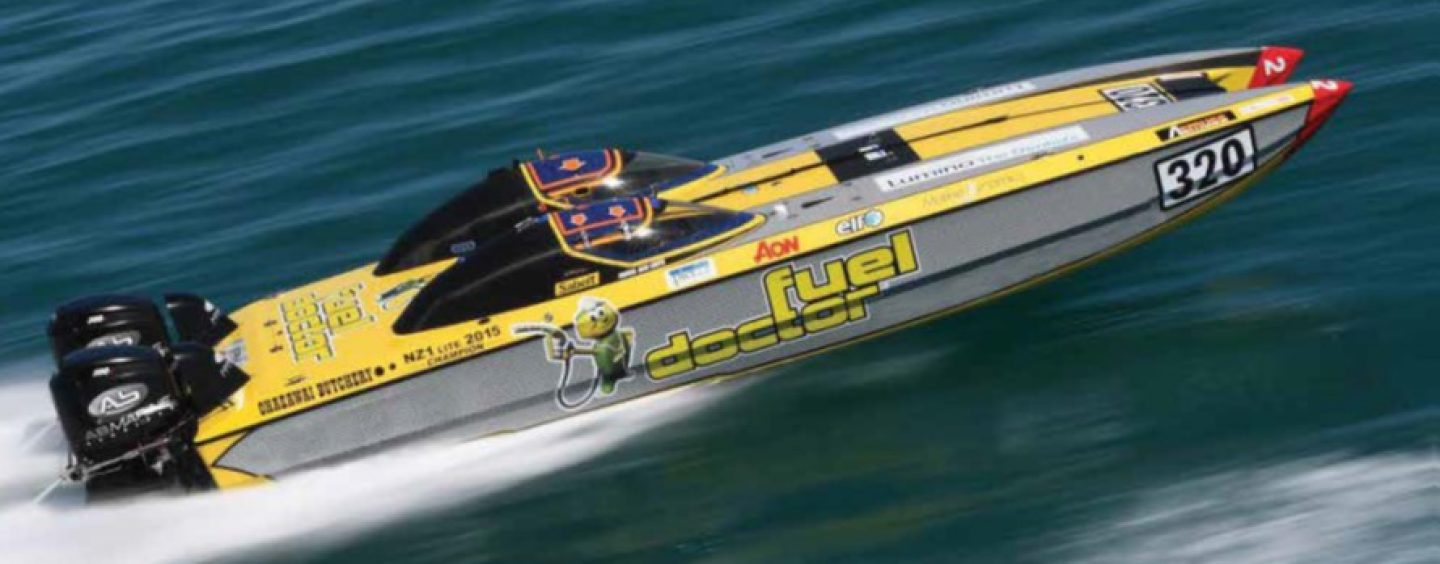![]() Cleaning boat tanks for the past thirty years has taught us a few things that most boaties don’t think or care about until it’s all too late and very expensive.
Cleaning boat tanks for the past thirty years has taught us a few things that most boaties don’t think or care about until it’s all too late and very expensive.
If I had a dollar for every telephone conversation that starts off with the statement “I Just Bought a Boat” I would be sitting on the back of one sipping Martinis and not still cleaning tanks.
Boat tanks would have to be the most difficult tanks to clean due to their construction, location and lack of forethought by tank and boat manufacturers who provide virtually zero access.
The major source of fuel contamination is water and with boats surrounded by it sooner or later it will become an issue due to ingress via defective caps, seals or vents.
Condensation becomes an issue in moisture laden atmospheres where fuel tanks are not fully pressed, allowing condensation to form on all internal surfaces not covered by fuel.
Water weighs a kilo per liter, Diesel 840 grams and Petrol 740 grams, as the fuel is sloshing around in a none pressed tank condensation drops to the bottom.
 Air born soil spores migrate into the tank via the natural breathing (expansion & contraction) of the air space within the tank, these spores remain dormant in the fuel and cause zero problems until coming into contact with water. Water at the fuel interface provides oxygen for germination, these spores are similar to brewers and baker’s yeast consequently they love heat. Injected diesel engines return up to five litres of diesel per minute back to the tank from the fuel rail at engine temperature, the spores germinate faster and grow quicker in the presence of heat.
Air born soil spores migrate into the tank via the natural breathing (expansion & contraction) of the air space within the tank, these spores remain dormant in the fuel and cause zero problems until coming into contact with water. Water at the fuel interface provides oxygen for germination, these spores are similar to brewers and baker’s yeast consequently they love heat. Injected diesel engines return up to five litres of diesel per minute back to the tank from the fuel rail at engine temperature, the spores germinate faster and grow quicker in the presence of heat.
The major source of contamination after condensation is fungal material (Black Death), and water that migrates from bulk storage tanks to your tanks due to poor housekeeping at Servos, Marinas and Truck-Stops.
It’s not rocket science to work out that if your tanks are made of plastic, fiberglass, stainless-steel or aluminum and you are finding rusty water in your filter’s sight glass, then that rusty water and Black Death migrated during the fuel bunkering process, that’s right you bought it.
Cladosporium Resinae (Clad) is the technical term for the microbial material that develops at a fuel water interface (diesel & petrol) it gestates from one or more of the 140 plus airborne soil spores that are attracted to hydrocarbons entering all fuel tanks due to their natural breathing cycle.
Clad weighs only one kilogram per cubic meter and is slimy and sticky like fairy floss, consequently fuel polishing and draining of the tank won’t fix the problem of blocked filters nor the consequential premature failure of fuel pumps and injectors.
Boat fuel tanks have numerous baffles, when the tank is drained Clad will still be attached to the baffles in inaccessible locations, inspection hatches are just that as they do not give you access to the majority of the baffles for cleaning.
The colloquial slang for Cladosporium Resinae is Black Death, Fuel Doctors refer to it as cancer of the fuel system, because once you have it, it is very difficult and expensive to kill it and just like chemotherapy for cancer you must follow the appropriate treatment regime to eradicate it.
Fuel Doctor is detergent based and is specifically formulated to clean inaccessible surfaces within inaccessible fuel tanks by breaking water and microbial material into sub-micron particles that are then suspended into the body of the fuel for harmless combustion, two dispersants deal with the organic cleaning which are supported by a proprietary upper-cylinder lubricity additive to lubricate the dispersed debris during combustion to protect common rail pump and injector components.
Technical Services
Phone 041-2211-777
www.fueldoctors.com.au
Published in print July-September 2021






























